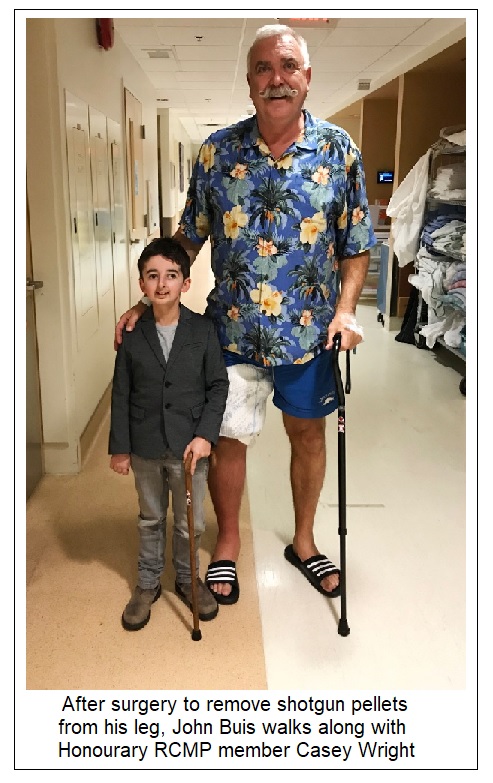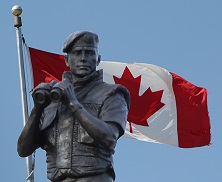True and Fascinating Canadian History
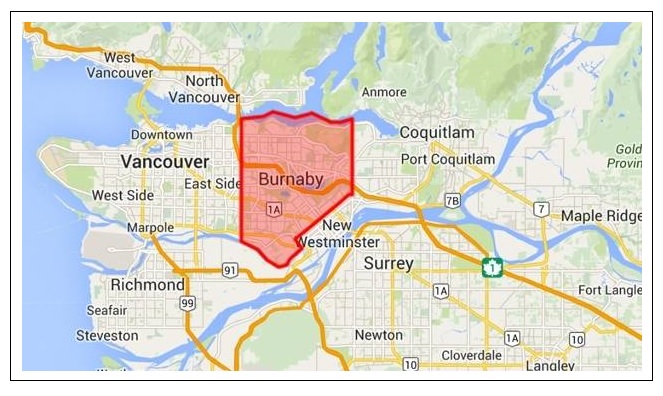
A Mystery of the Mounties:
And Near Death as a Neighbour
by J. J. Healy

The Superintendent at the RCMP Detachment in Burnaby, BC has the authority to implement as many changes as a Superintendent wishes in order to best serve the community, but he or she can’t turn the police radios off. They squawk 24 hours a day. No one can silence them.
Every hour in Burnaby, there are house break and enters for the RCMP to investigate, and robberies with violence, bar fights pop up especially on weekends, traffic accidents and fatalities are a daily occurrence, youths being detained for court often run away from official supervision centers, and then there are always missing persons. And every suspicious car and every stolen car heading west to reach Vancouver must first navigate the highways through Burnaby.
All that crime related activity makes Burnaby one of the busiest police detachments in Canada -- Burnaby is a huge city for the Force to manage but the RCMP has done it well since the early 1950’s. As an ever growing city, Burnaby is tightly squeezed in between Vancouver immediately to its west and New Westminster, BC to its east.
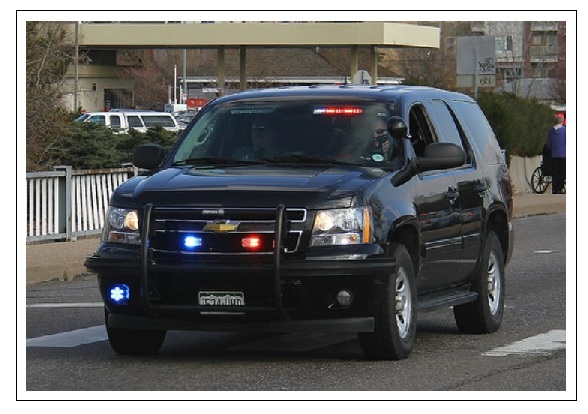
Sunday night was supposed to be a quiet night. Reg.#33612, RCMP Constable John Buis and his partner Reg.#29925, Constable Jack Robinson were assigned to plainclothes duties. They intended to surveil business properties downtown and try to prevent break ins before they happened. The pair were driving in an unmarked police cruiser on Burnaby's main thoroughfare the Kingsway in the city’s center.
In the next few minutes, the world of the two RCMP constables would be changed forever as will become very apparent in the frightening short story which follows and titled, “The Mystery of the Mounties, And Near Death as a Neighbour.” The story is truly frightening, as well as unbelievable, yet it holds a precious lesson or two for all police officers.
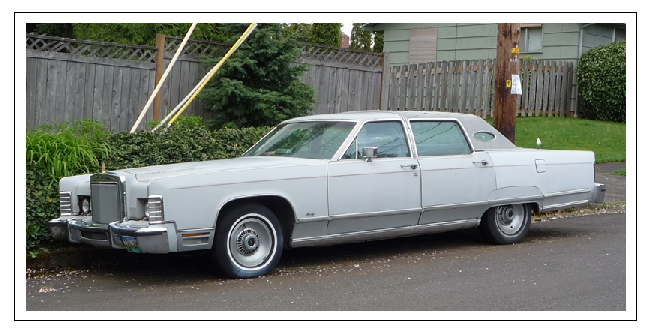
The police radio was squawking. It was April 22, 1979 at 8:30 p.m when the two police officers spotted a white Lincoln Continental speeding east on Kingsway at Wellingdon. If the police officers did not act quickly, the Lincoln would reach the border of neighbouring New Westminster and it would flee beyond the jurisdiction of the RCMP.
The two constables decided to immediately stop the car to learn if it was stolen. Perhaps the car’s occupants were also wanted. But the duo had to act fast.
Emergency lights in the police cruiser were activated, and the Lincoln stopped for the two constables at Kingsway and Russell just east of Imperial. Constables Buis and Robinson immediately counted seven occupants in the car. To do a through job and a search, this car stop was going to take some time. The pair of police officers intended to check all the occupants on the RCMP’s computer system. One or more people might be associated to criminal activity. Perhaps one or more of the passengers were wanted on an outstanding warrant.
Vehicle stops are mostly routine for police officers. It comes with the territory. The two constables had been through similar police ‘car stops’ hundreds of times before, but this car stop would turn out to be out of the ordinary. This particular car stop would be different than all the rest.
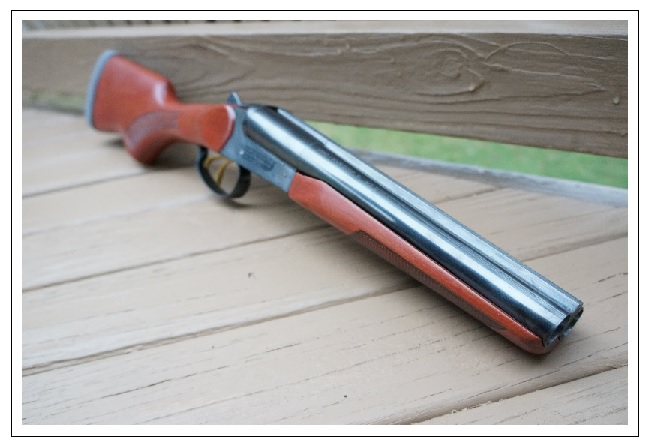
After the Lincoln stopped, Constable Buis and Constable Robinson pulled their cruiser in behind it. They quickly noticed that the Lincoln bore Texas licence plates. Almost immediately, and before the police officers could approach the vehicle, the driver unexpectedly got out of the car and began to walk in the direction of the police cruiser. That manoeuvre in itself was unusual, but not so unusual to be alarming.
The driver of the Lincoln identified himself as an American named David Barnes. He said he was 28 years of age. Barnes held the car’s registration in his hand, but he claimed that his driver’s licence had been stolen some time earlier in Washington State, USA. That's odd, thought the two RCMP.
Buis and Robinson were outnumbered, so they first called for backup just in case trouble broke out. Reg.#27726, Constable Merv Korolek was on duty nearby, and he responded as backup along with two other RCMP members who were also assigned to plainclothes duties. It is always a customary procedure for one police officer to act as a backup for the other if ever there is trouble and to prevent anyone from escaping if a fight breaks out.
Constables Buis and Robinson got out of the police cruiser and they both approached the Lincoln. Constable Buis’ attention was first drawn to one of the passengers in the front seat. Gustave Gyulay identified himself, but Constable Buis noticed that Gyulay appeared to be very nervous. Constable Buis asked Gyulay to step out of the Lincoln, and as he was stepping out of the car, Gyulay handed Constable Buis an official ID card which showed that he had been released recently from the BC Penitentiary and that he was cited for mandatory supervision. At that moment, Constable Buis did not know of Gyulay's violent background -- for one thing, when he was 15 years of age Gyulay had once tried to kill a police officer in Steinbach, MB.

Constable Korolek arrived and stopped his cruiser, then he walked up to the Lincoln. He peeked inside the car and asked for identification from the remaining passengers in the car. In the meantime, Constable Buis walked back to his police cruiser to check the identification of the driver Barnes and Gyulay on the RCMP computer system.
At that moment, none of the three police officers saw Gyulay secretly reach into the front seat of the Lincoln and pick up a sawed-off shotgun. Gyulay quickly hid the shotgun inside the back of his pants, and he covered the stock of the shotgun underneath the jacket he was wearing.
While Constable Korolek searched the Lincoln, he found some ammunition and a rifle scope inside the car. The driver, David Barnes was ordered to open the trunk of the car by Constable Korolek, and soon a sawed-off rifle covered in a plastic bag was discovered.
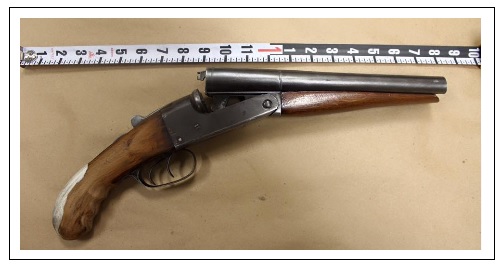
In the meantime, Constable Buis learned that the Lincoln was stolen. Now all the Lincoln’s passengers were crime suspects. Constable Buis got out of the police cruiser and turned to tell Constable Robinson that the Lincoln was stolen when all of a sudden Gyulay, who was standing on the sidewalk, drew the sawed off shotgun from behind his back and shot Constable Buis.
Constable Buis was immediately hit with the shotgun blast -- it torn at his legs destroying 15% of his right thigh, and 5% of his left thigh. Anyone looking on at the scene would have thought that a shark had bitten a huge chunk out of his legs. Constable Robinson was also hit with pellets. In the split second that Constable Buis fell to the ground, Constable Robinson grabbed his revolver and fired one shot at Gyulay who was holding the shotgun. All at the same time, Constable Korolek fired multiple shots from his service revolver at Gyulay as well.
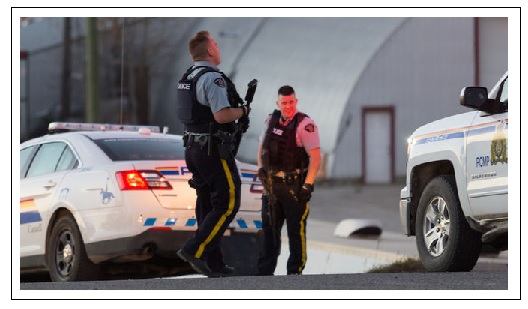
Luckily, a second blast shot from Gyulay’s shotgun missed the three police officers. Out of frustration, Gyulay then threw the shotgun aside on the street. Constable Robinson fired two rounds at Gyulay and he was hit in his legs, one shot hit his right knee and the other shot hit his left ankle.
In spite of his leg wounds, Gyulay rushed where Constable Buis was laying on the roadway. He grabbed Constable Buis’ handgun for its holster. Gyulay held the weapon beside Buis' ear and shot at Robinson, it missed its mark, then he cocked the weapon and placed it to the back of Buis’ head and threaten to kill Constable Buis if the other police officers didn’t drop their guns.

John Buis recalled the terrifying moments of the gun pointed at his head, he said, “I remember Gyulay taking my gun from me, but I was pretty well knocked out of it at that moment, and then he pulled the hammer back on my gun, immediately I was wide awake.”
Constable Buis has had years and years to think about the danger he faced, he said, “It’s not something you can describe because everything in your life does flash before you. I thought about my wife, my parents, my brothers and sisters, and all the important things in my life.”
All of a sudden, several other Burnaby RCMP members had arrived on the scene. Gyulay was holding Constable Buis’ service revolver, but he was talked out of firing it or doing anything more rash. At one point, Gyulay replied that he intended to commit suicide, but after a short negotiation, Gyulay was convinced to give himself up. He was taken into custody, and Constable Buis was then rushed to the Royal Columbian Hospital.
Today, John Buis continues to serve the Burnaby community. He is the Staff Sergeant Major of Burnaby Detachment, and every day his mind goes back to that Sunday night and the danger which it once held.
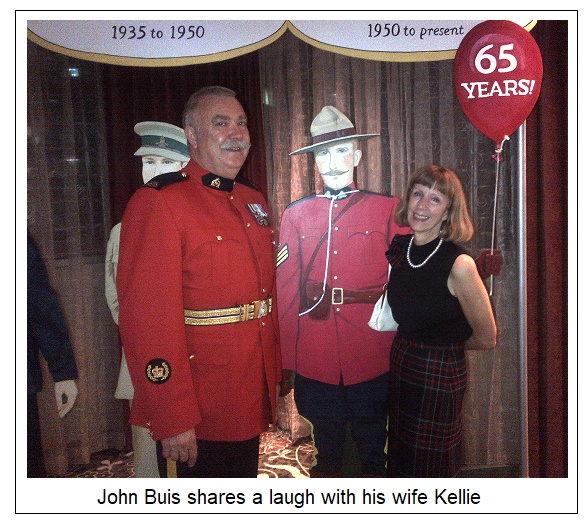
John recently said to me, “Thank God that I’m a tall police officer because I was shot in the thigh. If I were any shorter, the shots would have hit me higher and I would have died.” Today, it remains a full mystery that John Buis was not more seriously hurt or killed while Gyulay was holding the gun to John Buis' head. As a neighbour, death was not too far away.
There is a lesson or two here for all police officers. First, every car stop carries with it all the dangers which a police officer might ever face. There is no ordinary car stop. Every car stop has the potential to explode. Secondly, recall your police training.
Today, it’s more probable than ever before that every suspect car has weapons on board. If one senses danger, wait for back up. Radio in your location and a description of the suspect car and the occupants.
Insist that occupants remain seated in the car until you allow them to exit one at a time.
One can bet that nearly every suspicious American car will be sporting weapons. If you sense danger, follow your instincts.
A few weeks after the most dangerous episode of a lifetime on April 22, 1979 all three RCMP constables; Constable Korolek, Constable Robinson and Constable Buis were each awarded a Commanding Officer Letter of Appreciation for their quick actions.
Corporal Merv Korolek retired from the RCMP in 1995. Staff Sergeant Jack Robinson retired in 2005.
The Canadian suspect Gustav Steve Gyulay died in 2008.
The end.
Reporting from the Fort,
J. J. Healy
April 25, 2018
